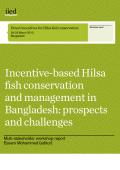The Road to Rio+20 publications, by the United Nations Conference on Trade and Development provide a series of essay compilations, all based around the ‘what’, ‘why’ and ‘how’ of making the transition to a development‐led green economy. Road to Rio+20 comprises three issues released in March 2011, November 2011 and June 2012.
The first issue aims to contextualise the green economy, examine the pros and cons from different perspectives, identify the critical issues and provide a case study to look at a specific green economy initiative. The second issue provides a series of real world references for governments, businesses and civil society; what is referred to in this volume as ‘pathways to a development‐led green economy’. The third issue moves forward the debate, focusing primarily on commitments and outcomes and the potential of Rio+20 to generate innovative ideas, policies and to consolidate sustainable development strategies of governments.

One of the strong messages that came out of the United Nations Climate Change conference in Durban was that the private sector has to play an important role if we are to globally move toward a low carbon, climate resilient—or “climate compatible”—future. However, private investment will only flow at the scale and pace necessary if it is supported by clear, credible, and long-term policy frameworks that shift the risk-reward balance in favor of less carbon-intensive investment. The private sector also needs information on where to invest in clean energy in emerging markets, and it needs policy support to lower investment risk. Barriers to low carbon investments often include unclear and inconsistent energy policies, monopoly structures for existing producers, stronger incentives for conventional energy than clean energy, and a domestic financial sector not experienced in new technologies.
Bangladesh seeks to attain middle-income status by 2021, the 50th anniversary of its independence. To accelerate growth enough to do so, it will need to undergo a structural transformation that will change the geography of economic production and urbanization. Critical to its transformation will be the creation of a globally competitive urban space, defined here as a space that has the capacity to innovate, is well connected internally and to external markets, and is livable (Organization for Economic Cooperation and Development, or OECD 2006; World Bank 2010). This study identifies what is unique about Bangladeshs process of urbanization and examines the implications for economic growth. Through the lens of Bangladeshs most successful industry, the garment sector, it describes the drivers of and constraints to urban competitiveness. Based on the findings, it provides policy directions to strengthen the competitiveness of Bangladeshs urban space in ways that will allow Bangladesh to reach middle-income status by 2021.
Climate change is one of the most pressing threats to development today. Addressing climate change requires that countries take an integrated approach to climate and development planning so that policies and actions across multiple sectors and scales facilitate the adaption to climate change and deliver poverty reduction gains. An important tool for countries to manage climate finance is the National Climate Fund (NCF). NCFs are nationally-driven and nationally-owned funds that help countries to collect climate finance from a variety of sources, coordinate them, blend them together and account for them. This guidebook is part of a series of practical guidance documents and toolkits to support national and sub-national governments to achieve low-emission, climate-resilient development. It is based on UNDP’s decades of experience in delivering climate change programming in order to help countries design and establish an NCF.
The guide presents the following as key goals of NCFs:
•collect sources of funds and direct them toward climate change activities that promote national priorities
